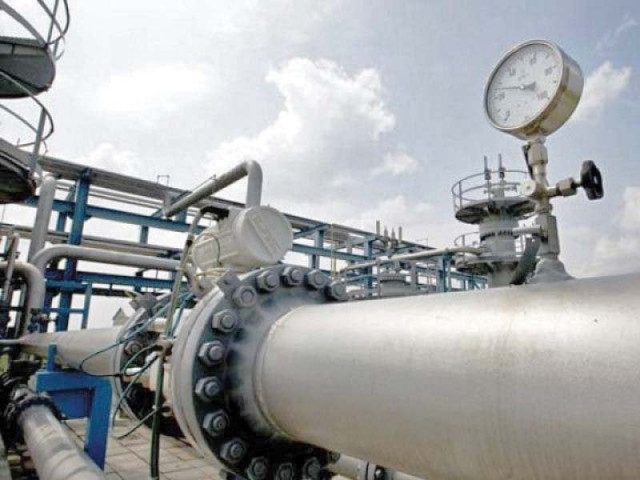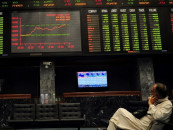Minister announces up to 168% rise in gas prices
Electricity tariffs increased by Rs1.5 per unit

PHOTO: FILE
The government has made no increase in the gas price for consumers falling in the first slab. However, the price has been hiked by 136.2% for the consumers falling in the second slab, 101.89% for the third slab, 168.36% for the fourth slab and 41.92% for the fifth slab.
However, the tariff for bulk gas consumers and for the consumers falling in the sixth slab has been kept at Rs780 and Rs1,460 per million British thermal units (mmbtu) respectively.
The monthly bill for the first slab of gas consumers has been kept unchanged at Rs285, the bill for second-slab consumers will go up from Rs572 to Rs933; for third-slab consumers from Rs2,305 to Rs3,712, for fourth slab from Rs3,589 to Rs7,995 and for fifth slab from Rs13,508 to Rs14,373.
OGRA recommends cut in petrol price, hike in diesel rate
Increase for industrial sector
According to a notification, the government has increased the price of gas to be used as feedstock by old fertiliser plants by 62%. However, no increase has been made for the new fertiliser plants.
As much as 31% increase has been made in the price of gas to be used as fuel by fertiliser, power, cement and captive power plants, general industry, zero-rated industry, CNG stations and commercial consumers.
At a press conference, the power minister said the Oil and Gas Regulatory Authority (Ogra) had determined the total revenue requirement of the two public gas utilities for FY20 at Rs541 billion, which included Rs54 billion on account of circular debt accumulated in prior years. Based on that, Ogra determined the average cost of domestic gas supply at Rs738 per mmbtu.
The present tariff can generate a total revenue of Rs397 billion during the year, resulting in a revenue shortfall of Rs144 billion. Therefore, “the revision in gas sale prices is inevitable,” he said, adding that even with the proposed increase, 95% of domestic consumers were being subsidised for a total of Rs104 billion.
He said 45% of the domestic consumers, currently paying only Rs121 per mmbtu, would not face any price increase and their tariff was fixed at only 16% of the cost of supply. The objective of the government was to gradually bring gas tariffs closer to the cost of supply for most consumers while protecting the low-end consumers, he said. “This is necessary for long-term sustainability of the gas sector.”
High-end domestic consumers, who consumed 4hm3 or more, faced a price increase of up to 143% in September, while other consumers had a price increase ranging from 5% to 25%.
The slab structure had been revised to provide one previous benefit to the domestic consumers, he said, adding that 95% of the domestic consumers were being cross-subsidised by high-end domestic consumers and other sectors. Major reason for the high consumer bills during winter is inefficient and continued use of gas in geysers and heaters.
Lounge service at IIA gets dearer with dollar hike
Electricity prices
The power minister said the government would not increase electricity rates for the consumers using 300 units of electricity in a month. These consumers accounted for 75% of total consumers, he said. The government had also allocated Rs217 billion for different sectors, including domestic consumers, he added.
He also announced that a subsidy of 54% had been set for tube-well consumers, adding that it had been inherited from the Pakistan Muslim League-Nawaz (PML-N) government and the current administration was looking for a solution.
He said the government had not made any increase in electricity prices for small businesses and general stores, which constituted 95% of the commercial sector.
He said the National Electric Power Regulatory Authority (Nepra) had determined the tariff increase to recover Rs190 billion on account of capacity payments and the decision was taken by the PML-N government. He also alleged that the PML-N government for developing expensive power projects.
Published in The Express Tribune, June 30th, 2019.
Like Business on Facebook, follow @TribuneBiz on Twitter to stay informed and join in the conversation.


















COMMENTS
Comments are moderated and generally will be posted if they are on-topic and not abusive.
For more information, please see our Comments FAQ